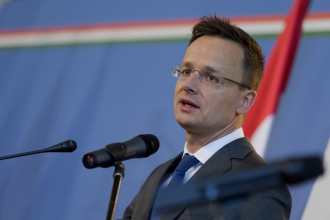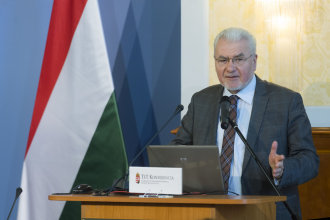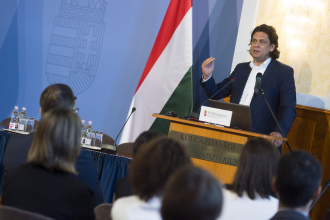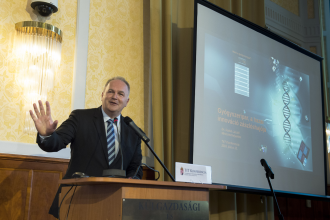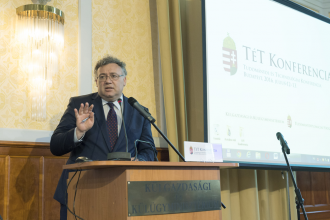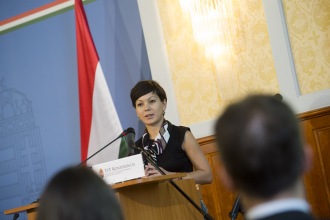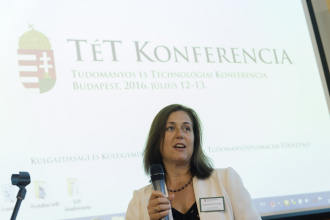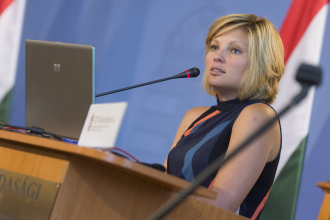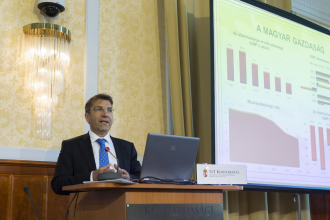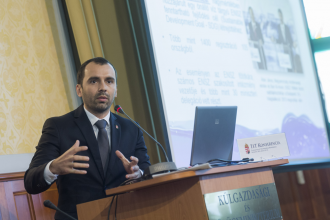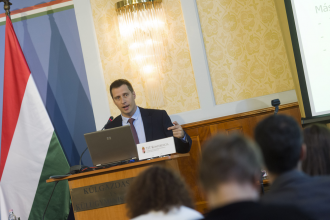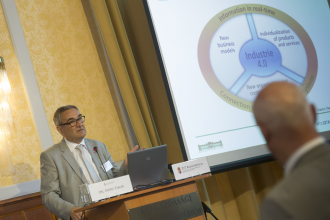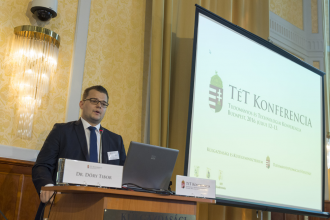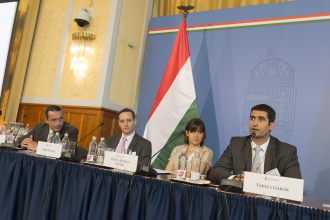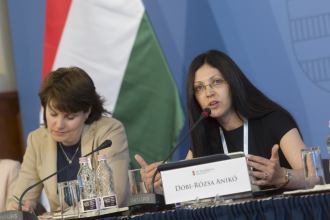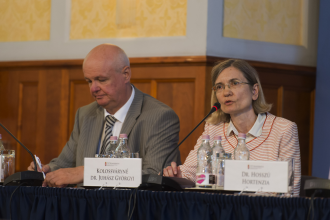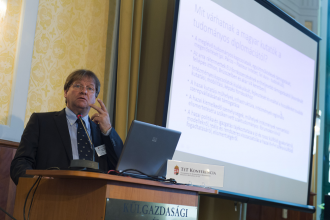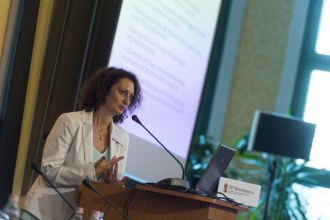Scientific excellence and technological development are key factors in global competition, thus there is no and there can be no meaningful science diplomacy without cutting-edge, internationally renowned research projects. Contributing with their platforms to share valuable and authentic information, S&T attachés can make our national R&D capacity more visible in the international market and vitalise relations between the scientific and business sectors. International embeddedness can help convert research findings to real, useful and internationally marketable innovation. József Pálinkás expressed: We have every reason to be proud of our Nobel laureates but that is history; multinational manufacturers and investors are only interested in innovation, added value and expertise that we have to offer right now, so in addition to the RDI system we also have to modernise our educational system. These thoughts were reinforced by Minister Péter Szíjártó, who in his keynote speech emphasized that Hungary's strategic objective is to create the most attractive innovation environment within the region and to convince large multinational companies to install their RDI centre in the country in addition to their manufacturing plants.
We would like to build bilateral scientific and technological cooperation on more extensive, project-based programmes, primarily with those countries which are ranked highly in a specific RDI field or with partners who can offer market for our knowledge, technology and innovation, the president of the NRDI Office said. Previous S&T calls mainly focused on the mobility and exchange of researchers. Going further, since 2015 the NRDI Office has announced three different calls to fund joint RDI projects implemented in cooperation, ranging from basic research to market-oriented developments, and there are further similar programmes in preparation. The Office spends HUF 300-300 million (nearly EUR 1 million each) on funding the RDI activity of projects implemented with Indian and Israeli partners, and the Hungarian–Chinese S&T call with a total budget of HUF 200 million (EUR 640 thousand) is still open. In the competitive bidding portfolio coordinated by the NRDI Office, HUF 2.1 billion (EUR 6.7 million) is allocated to boost bilateral cooperation in the field of research and development from the National Research, Development and Innovation Fund. In addition to the S&T calls, several other programmes aim to strengthen international cooperation in RDI with a further budget of more than HUF 11 billion (EUR 35 million), financed from European and domestic funds.
Network of science and technology (S&T) attachés
In order to achieve the RDI objectives and to market domestic scientific results, Hungary maintains a network of science and technology attachés which plays a key role in building and maintaining relations, identifying resources and disseminating authentic information. The network is operated jointly by the Ministry of Foreign Affairs and Trade and the National Research, Development and Innovation Office. More specifically, the professional work is coordinated by the Department of International Relations of the NRDI Office, while the S&T attachés work as public officials of the Ministry, within the framework of single and integrated subdivisions of the foreign representations under the direct supervision of the ambassador or consul-general. The S&T attachés are selected in the framework of an open call for applications.
Bilateral scientific and technological (S&T) cooperation agreements
Currently, Hungary has bilateral scientific and technological cooperation agreements with 37 countries. These agreements form the framework of calls for applications which primarily provide funds for international networking and exchange of researchers: the currently running calls foster relations with Croatia, Slovenia, Portugal, France, Serbia and Morocco. In line with the new approach, the long-term objective is that these cooperations should also lead to joint project-based research activity. Before announcing such large-scale calls designed in the new approach, the NRDI Office has involved the domestic RDI community to map the already existing, active international cooperation relationships and to identify the scientific strengths which can serve as the basis for similar projects in the future. On the basis of the findings, the Office offers to foreign partner institutions the opportunity to launch bilateral RDI programmes. Such major calls for industrial and RDI cooperation projects were announced in 2015 in relation to Israeli and Indian partners, and one is still open in relation to Chinese partners.







